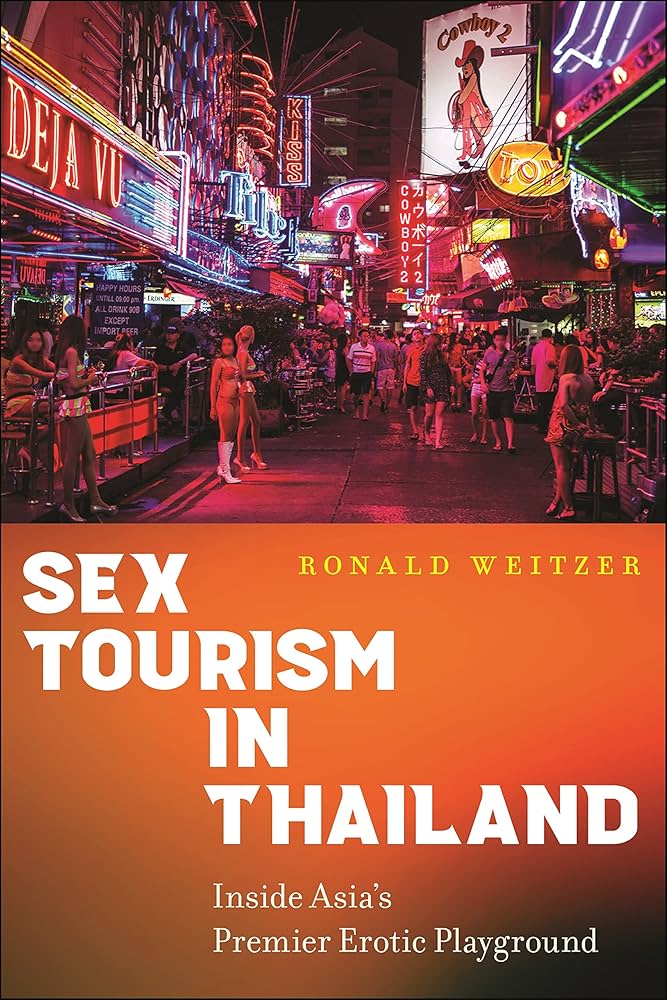Thailand is renowned worldwide for its vibrant tourism industry, which encompasses a diverse array of attractions, including its rich cultural heritage, scenic landscapes, and bustling cities. Among these, the sex industry has garnered significant attention, often intertwined with perceptions of Thailand’s tourism appeal. This complex facet of Thai society reflects a confluence of cultural, economic, and legal factors that shape the experiences of both locals and visitors. Understanding the nuances of the sex industry in Thailand requires an exploration of its cultural context, legal status, popular destinations, societal attitudes, and the impact on communities and individuals involved.
Overview of the Sex Industry in Thailand and Its Cultural Context
The sex industry in Thailand is a longstanding phenomenon deeply embedded in the country’s socio-cultural fabric. Historically, certain aspects of sexuality have been somewhat tolerated or discreetly accepted within Thai society, influenced by Buddhist principles emphasizing karma and moral conduct. Tourism has played a pivotal role in shaping this industry, with many foreign visitors seeking adult entertainment as part of their travel experience. Bangkok, Pattaya, and Phuket are among the most prominent hubs where sex tourism is visible, often intertwined with the hospitality sector. Despite its visibility, the industry exists within a complex web of cultural attitudes that oscillate between acceptance, moral concern, and social stigma, reflecting broader societal debates about morality, gender roles, and economic survival.
Legal Framework and Regulations Surrounding Sexual Activities in Thailand
Thailand’s legal stance on sex work is characterized by a paradoxical framework. While prostitution is officially illegal under the 1960 Prevention and Suppression of Prostitution Act, enforcement is inconsistent, and the industry continues to operate openly in many areas. Authorities often tolerate certain establishments, such as entertainment venues and massage parlors, which may serve as fronts for sexual services. Broader regulations aim to curb trafficking, underage sex, and exploitation, but enforcement challenges persist. Laws related to human trafficking, child protection, and public decency form the basis of legal regulation, yet the clandestine nature of much of the industry complicates legal interventions. This ambiguous legal environment impacts how sex workers operate and how authorities address issues related to their welfare and rights.
Popular Tourist Destinations Known for Adult Entertainment in Thailand
Thailand’s major tourist destinations are renowned for their vibrant adult entertainment scenes. Pattaya, situated on the Gulf of Thailand, is perhaps the most famous for its lively nightlife, go-go bars, and entertainment districts that cater to international visitors. Bangkok’s red-light districts, such as Patpong, Nana Plaza, and Soi Cowboy, offer a variety of adult entertainment venues that attract millions of tourists annually. Phuket, with its beaches and nightlife, also hosts numerous bars and clubs where adult entertainment is available. These destinations have developed infrastructure to support the industry, making them central hubs for those seeking adult entertainment, while also raising questions about the social and economic impacts on local communities and the tourism sector.
Social Perspectives and Public Attitudes Toward Sex Work in Thailand
Public attitudes toward sex work in Thailand are complex and multifaceted. While some segments of society view the industry as a necessary economic activity that provides livelihoods for many, others see it as a moral issue or a social problem. Cultural norms influenced by Buddhism tend to promote tolerance, yet moral debates persist, especially concerning exploitation and trafficking. Government officials, NGOs, and civil society organizations have varying perspectives on how best to address the needs of sex workers, balancing concerns about human rights, public health, and morality. Despite some societal acceptance, sex workers often face stigma, discrimination, and limited access to social services, reflecting ongoing tensions between cultural tolerance and social marginalization.
Impact of Tourism on Thailand’s Sex Industry and Local Communities
Tourism has significantly fueled the growth and visibility of Thailand’s sex industry, bringing economic benefits to local communities but also raising concerns about social impact. The industry attracts millions of visitors annually, generating substantial income for entrepreneurs, entertainers, and service providers. However, this influx of tourism often exacerbates issues such as human trafficking, exploitation, and the commercialization of local cultures. Communities near major tourist hubs sometimes experience social disruption, with increased crime rates, changes in social norms, and concerns about the erosion of local values. While tourism contributes to economic development, it also necessitates careful management to mitigate negative consequences and promote sustainable and ethical tourism practices.
Resources and Support Systems for Sex Workers in Thailand
Various organizations and initiatives aim to support sex workers in Thailand, focusing on health, safety, and human rights. NGOs and community groups provide services such as health education, HIV/AIDS prevention, legal assistance, and vocational training. Some programs work to empower sex workers by advocating for their rights and reducing stigma, while others focus on combating trafficking and exploitation. Despite these efforts, many sex workers face barriers to accessing healthcare and social services due to stigma, legal ambiguities, and social marginalization. Continued efforts are essential to improve support systems, promote safer working conditions, and uphold the dignity and rights of individuals involved in the industry.
Thailand’s sex industry remains a complex and multifaceted aspect of its society and economy. While it offers economic opportunities and attracts tourism, it also raises ongoing questions about legality, morality, social impact, and human rights. Understanding this industry within its cultural context and acknowledging the efforts to support those involved is crucial for fostering informed discussions and responsible tourism practices. As Thailand continues to evolve as a global destination, balancing economic benefits with ethical considerations remains a vital challenge for policymakers, communities, and visitors alike.









